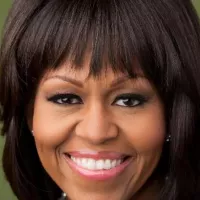Google Hangouts, a multi-platform instant messaging service by Google, originated as a Google+ feature and became independent in 2013. This period also saw the integration of Google+ Messenger and Google Talk features. Google later incorporated features from its internet telephony service, Google Voice, into Hangouts, with the intention of positioning Hangouts as the future of Voice.
May 15, 2013: Official Launch of Google Hangouts
On May 15, 2013, Google officially launched Hangouts at the Google I/O conference, following speculation about a new service codenamed "Babel."
May 2013: Electronic Frontier Foundation Criticism
In May 2013, the Electronic Frontier Foundation (EFF) voiced concerns about Google Hangouts' reduced support for the open standard XMPP protocol, potentially hindering third-party clients. Concerns about privacy and data sharing due to the integration with Google+ were also raised.
2013: Google Hangouts Launch and Feature Integration
In 2013, Google Hangouts transitioned from a Google+ feature to a standalone product. This period also saw the integration of features from Google+ Messenger and Google Talk into Hangouts.
November 2014: Make Use Of Praise for Google Hangouts
Make Use Of recognized Google Hangouts as the "best messaging app on Android by far" in November 2014.
2014: Expected Google Voice Integration
Google planned to integrate Google Voice into Hangouts by 2014, though this integration faced delays and eventual deprecation.
February 16, 2015: Google Talk Discontinuation and Migration to Hangouts
Google announced the discontinuation of Google Talk on February 16, 2015, encouraging users to transition to the Hangouts app on the Chrome browser.
December 2015: Electronic Frontier Foundation Security Scorecard
In December 2015, the Electronic Frontier Foundation awarded Google Hangouts a score of 2 out of 7 on its Secure Messaging Scorecard. While Hangouts received credit for encrypted transit and independent security audits, it lost points for provider access to encryption keys, lack of contact identity verification, insecure past messages in case of key compromise, closed-source code, and insufficient security documentation.
January 2016: Deprecation of Google Voice SMS Integration
Despite initial plans for integration, Google deprecated the full integration of Google Voice SMS within Hangouts in January 2016. The expected integration was linked to Google's transition from the XMPP protocol.
January 2016: Discouragement of Hangouts for SMS
In January 2016, Google advised against using Hangouts for SMS, recommending users to opt for Google's dedicated "Messenger" SMS app, later rebranded as "Messages."
May 2016: Announcement of Google Allo and Google Duo
At Google I/O 2016, Google introduced two new messaging apps: Google Allo, featuring AI-powered capabilities, and Google Duo, focused on video calling, signaling exploration of new communication avenues.
August 15, 2016: Hangouts on Air Discontinuation Announcement
On August 15, 2016, Google made the decision to discontinue Hangouts on Air, planning to merge it into YouTube Live.
September 11, 2016: Postponement of Hangouts on Air Shutdown
On September 11, 2016, Google delayed the shutdown of Hangouts on Air to August 1, 2019, allowing time for users to transition to other livestreaming options.
September 12, 2016: Initial Hangouts on Air Shutdown Date
September 12, 2016, was initially set as the shutdown date for Hangouts on Air, although it was later postponed.
January 6, 2017: Google Hangouts API Shutdown Announcement
Google stated its plan to shut down the Google Hangouts API on April 25, 2017, impacting developers and third-party integrations.
March 9, 2017: Hangouts Brand Split: Meet and Chat
Google revealed its strategy to focus Hangouts on business users, splitting the brand into Hangouts Meet (now Google Meet) for video conferencing and Hangouts Chat (now Google Chat) for instant messaging.
April 25, 2017: Google Hangouts API Shutdown
On April 25, 2017, the Google Hangouts API was shut down as announced, impacting developers and third-party integrations.
2017: Development of Google Meet and Google Chat
In 2017, Google started developing Google Meet and Google Chat, two distinct communication products within its Google Workspace suite, signaling a move towards specialized tools.
November 2018: Hangouts Chrome App Replacement Announcement
The Hangouts Chrome app began displaying messages in November 2018, signaling its impending replacement with the Hangouts Chrome extension. This sparked criticism from some users.
December 2018: Google Allo Discontinuation Announcement
Google revealed in December 2018 its decision to discontinue Google Allo in March 2019, with some features integrated into Google Messages.
December 2018: Announcement of "Classic" Hangouts Disablement
In December 2018, Google stated its intention to disable the "classic" Hangouts experience by October 2019.
March 2019: Google Allo Discontinuation
In March 2019, Google Allo was shut down as planned, marking a shift in Google's messaging strategy.
August 1, 2019: Hangouts on Air Discontinuation and Integration with YouTube Live
On August 1, 2019, Google shut down Hangouts on Air as announced, integrating its features into YouTube Live.
August 2019: Announcement of G Suite Hangouts Replacement and Shutdown Date
Google confirmed in August 2019 that "Meet" and "Chat" would replace the G Suite version of Hangouts, with a shutdown scheduled for June 2020.
October 2019: "Classic" Hangouts Disablement for G Suite Users
Google disabled the "classic" Hangouts experience for G Suite users in October 2019, encouraging a transition towards Meet and Chat.
April 2020: Google Meet Made Free and Hangouts' Consumer Focus
In April 2020, amidst the COVID-19 pandemic, Google made Google Meet accessible for free to all users. Google also reaffirmed its commitment to keeping Hangouts available for consumers with standard Google accounts.
June 2020: Transition of Workspace Users to Meet and Chat
Google began transitioning Workspace users from Hangouts to Google Meet and Google Chat in June 2020, marking a shift towards enterprise-focused communication solutions.
June 2020: G Suite Hangouts Shutdown
In June 2020, Google shut down the G Suite version of Hangouts, completing the transition to Meet and Chat for business users.
October 2020: Google Chat Free Availability and Replacement of "Classic" Hangouts
Google announced in October 2020 that Google Chat would become free for all users and would eventually supersede "classic" Hangouts by 2021.
April 2021: Google Chat Early Access Release
Google Chat became accessible as an "Early Access" service in April 2021, offering users an alternative to Hangouts.
2021: Google Chat Replaces "Classic" Hangouts
As previously announced, Google Chat replaced the "classic" Hangouts service in 2021.
2021: Gmail Users Transition to Meet and Chat
Throughout 2021, Gmail users transitioned from Hangouts to Google Meet and Google Chat, further expanding the reach of the newer communication platforms.
June 27, 2022: Official Announcement of Google Hangouts Shutdown
Google formally announced on June 27, 2022, its decision to shut down Google Hangouts on November 1, 2022. They planned to migrate all users to Google Chat.
November 1, 2022: Google Hangouts Discontinuation
On November 1, 2022, Google Hangouts was officially discontinued, marking the end of its run. Users were transitioned to Google Meet and Google Chat.
Mentioned in this timeline
Google Meet is a video communication service by Google replacing...

Google LLC is a multinational technology company specializing in online...

September is the ninth month of the year in the...
Trending

40 minutes ago Chris Paul Announces Retirement from NBA Following Raptors Waiver: 'This Is It!'

2 hours ago College Baseball 2026: Storylines, Player Picks, Opening Weekend Updates, and Coaches Forum
2 hours ago Rennes-PSG official lineups announced; Luis Enrique praises PSG's season; Ligue 1 weekend preview.

Monica Seles a former Yugoslav-American professional tennis player achieved the world No ranking by the WTA for weeks and was...

4 hours ago Casey Dawson Withdraws from 10,000m, Carries Out Fantasy Football Punishment, Races in 5,000m.

5 hours ago Alex de Minaur Dominates Rotterdam, Replacing Alcaraz and Defeating Wawrinka: A Tennis Triumph
Popular

Kid Rock born Robert James Ritchie is an American musician...
The Winter Olympic Games a major international multi-sport event held...

Barack Obama the th U S President - was the...

XXXTentacion born Jahseh Dwayne Ricardo Onfroy was a controversial yet...

Michael Joseph Jackson the King of Pop was a highly...

Michelle Obama is an American attorney author and former First...